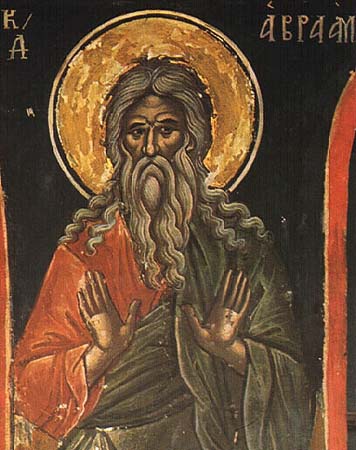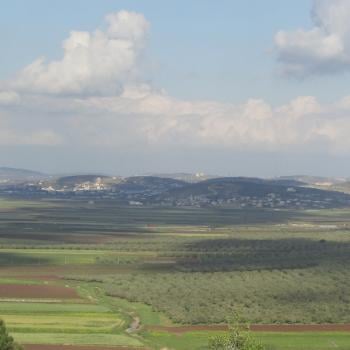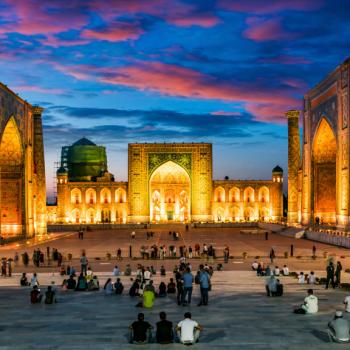
(Wikimedia Commons public domain)
The latest iteration of the bi-weekly Hamblin/Peterson column has appeared in the Deseret News:
“The African legend of Sundiata and the spread of Islam”
***
Continuing with my manuscript on Islam for Latter-day Saints:
A personal favorite of mine, however, is a story to which the Qur’an merely alludes, without telling it all in detail. (This is the usual approach of the Qur’an, which frequently refers to stories with which it presumes that its audience will already be familiar. The somewhat elliptical or allusive quality of the Qu’ran is probably the main reason that many Western readers find it so off-putting.) This is the story of Abraham and the idols of his father, with which some Latter-day Saint readers will already be familiar, from the book called Jasher:
Attempting to demonstrate to his father Terah the futility of worshiping idols, Abraham one day went into his father’s shrine with a hatchet and hacked all of the gods—except for their chief—to pieces. Then, before leaving the room, he placed the hatchet in the hands of the still-intact chief god. His father, hearing the noise of violent chopping in his private sanctuary, ran and met Abraham at the door. Pushing past his son, Terah went into the shrine. There he found all the idols fallen down and broken, while the chief idol still stood with the hatchet in its hand. He was furious. Knowing his son’s attitude toward idolatry, and having seen his son emerging from the shrine, he naturally demanded to know of Abraham what he had done to the gods of his father. But Abraham denied having anything to do with the destruction of the idols. “No,” he said, “it was the chief god who did it, out of jealousy when the other, subordinate gods had tried to beat him to the meat offering.” Terah roared with anger. “You are lying!” he told his son. “These gods are just wood and stone. I made them myself.” How could they possibly have done anything like what Abraham had described? “Ah,” said Abraham, “but that is precisely the point! They are merely wood and stone, which can neither hear nor speak nor act. So why pray to them?”[1]
I have already spoken about the common assumption that the Qur’an identifies the son of Abraham who was nearly sacrificed upon Mount Moriah as Ishmael, rather than the Bible account’s Isaac. We have seen, though, that the Qur’an nowhere names the son who came so near to human sacrifice. And, in fact, the Qur’an has a great respect for Isaac. Of Abraham, the God of the Qur’an says, “We gave him Isaac and Jacob and bestowed on his descendants prophethood and the Scriptures.”[2] Clearly, this passage teaches the continuation of the prophetic gift in the Jewish line, through Jacob or Israel. Ishmael appears in the Qur’an and is treated with immense respect as a chosen servant of God and a messenger, but Isaac is described as a prophet.[3]
[1] This story is told at Jasher 11:16-51. See The Book of Jasher (Thousand Oaks, CA: Artisan Sales, 1990), 25-27. This translation of the Book of Jasher first appeared in 1840. It was reprinted, at Salt Lake City, in 1887.
[2] 29:27; compare 4:54.
[3] 19:54-55; 37:112.












